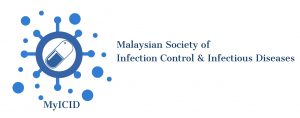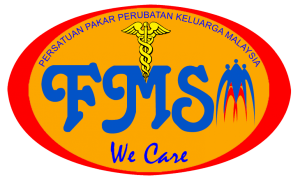| PRESS RELEASE |
COVID-19 IS STILL A THREAT
As we welcomed 2023, China reported a huge spike in daily COVID-19 cases during the end of year holiday seasons 2022.
After a period of pandemic fatigue and indifference, the event sparked sudden and short-lived fear and caution among the global as well as Malaysian community.
The news triggered some Malaysians to be up in arms, calling for a ban on travelers from China and reinforcement of pandemic SOPs such as the mandatory wearing of mask in public areas.
Nonetheless, the interest soon died down as other headlines made their way in the news.
It appears that it is only when crises are about to hit our shores that we react.
In fact, as highlighted by the World Health Organisation (WHO), we need to always be prepared and cannot afford to be reactive.
On January 27, 2023, it announced and reminded member countries that COVID-19 remains a public health emergency of international concern.
WHO compared 28-days data between Dec 5, 2022 to Jan 1, 2023 and Jan 2 to Jan 29, 2023.
It found that although the number of cases reported decreased by 78%, the number of deaths increased steeply by 65%.
This result is mainly due to the large wave of cases and deaths in the Western Pacific Region, especially in China.
WHO further states that the numbers may be an underestimation due to the reduction in testing and delay in reporting in many countries.
STAY VIGILANT & PROTECT THE VULNERABLE
3 years into the pandemic, Malaysia has reported more than 5 million cases and over 36,000 deaths.
In 2021, it became the main cause of death in Malaysia, overtaking heart disease.
The risk of death is higher among:
- Those above 60 years
- Individuals with underlying health conditions
- Unvaccinated individuals
According to MOH data between Jan 1, 2022 to July 31, 2022, 75% of COVID-19 deaths were among individuals 60 years and above, and 86% of deaths were among those with at least one underlying health condition .
Compared to the first year of pandemic, we are now more prepared to curb COVID-19 due to advancement in preventive measures, rapid diagnoses, and management tools such as vaccination, rapid test kits (RTK) as well as early treatment with antivirals.
These tools are important particularly to prevent severe COVID-19, keeping individuals especially those with risk factors away from hospitalization, intensive care unit (ICU) admissions and ultimately death.
Nonetheless, these tools will only be useful if they are being utilized optimally.
While Malaysians were quick on the uptake of primary COVID-19 vaccination doses, the uptake of booster doses are very poor with only 49.7% uptake of the 1st booster and a mere 1.6% of the 2nd booster (as of Feb 7, 2023) .
While no concrete data is available, there are good reasons to believe that due to pandemic fatigue, people are now less likely to test and seek treatment for COVID-19.
It is also important to note that antiviral treatment needs to be taken within the first 5 days of symptom onset. Thus, speed is of the essence.
We cannot risk another surge of COVID-19 globally or locally as it would put a toll on our healthcare system and risk overwhelming it.
In addition to COVID-19, we are also facing the threat of other respiratory illnesses such as influenza and respiratory syncytial virus (RSV).
As it stands, we are currently experiencing overcrowding in Emergency Departments.
Hence, it is crucial that we answer the calls of WHO and the Ministry of Health Malaysia to continue urging the public especially those who are in the high-risk groups (older persons, individuals with underlying medical conditions) to take precautions against COVID-19.
OUR CAMPAIGN

The Malaysian Society of Infection Control and Infectious Diseases (MyICID) in collaboration with the Family Medicine Association Malaysia (FMSA) and Malaysian Medical Association (MMA) are organising an educational campaign themed COVID-19: QUICKLY TEST & TREAT.
Our objectives
This campaign aims to urge the public especially individuals who are at high-risk as well as their family members to continue protecting themselves and others from severe COVID-19 by:
- Getting primary and booster doses
- Testing immediately upon onset of symptoms
- Seeking early treatment, within the first five days of symptoms
Our campaign’s panel of experts
- Dr Alif Adlan Mohd Thabit Infectious disease physician
- Dr Ang Peng Peng Infectious disease physician
- Dr Suriani Sulaiman Family medicine specialist
- Dr Balachandran S Krishnan General practitioner










